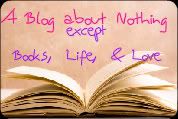With the new podcast episode up (The Book Thief), I thought it might be appropriate to highlight a few of my favorite novels set in the time of World War II.
Though it was an era of very difficult times for millions of people, out of that, we get a few gems - teaching us about humankind and evils alike. Most of us don't know what it is to suffer like those who were persecuted and killed in WWII. My grandpa was there to see it firsthand, as was my grandfather. Grandpa served in Europe and spent time with the "clean-up" after it was over. It wasn't a pleasant experience and he rarely spoke of it. When he did, though, it was always with sadness and respect for those who fought.
We tend to learn best and sympathize most when we are told stories, which is why fiction and tales based on fiction are so popular. The effect that war stories have on us tends to be stronger than other fiction stories. Reading about the heroes helps us all reach inside ourselves to be better people.
One of the first novels I read set in WWII was Number the Stars, by Lois Lowry. I read it when I was still very young and had a difficult time understanding why people hated other people so much that they started a war. It had a big impact on me, however, and I still find this a moving piece of literature now that I'm older.
Number the Stars tells about a young girl and her family who hide a Jewish girl from the Nazis. It's a story set in Denmark, where a nation of heroes tries their best to help in the war effort. Readers will not only be engaged in the plot, but also in the friendship of the girls and the heroism of the family and nation around them.
Another book I read while still in elementary school was The Endless Steppe, the story of Esther Hautzig and her family. It's been a while since I've re-read this one, but it is particularly moving knowing that it is a true story of how one girl and her family survived the harsh Siberian steppe. I blame this book for my fascination with Siberia! ;)
Esther and her family were arrested out of Poland and taken to work in the potato fields of the steppe. For five years, they struggled through hardships. Esther's father was forced into the army. This is a fascinating glimpse into one of WWII's stories that ended on a happier note than we usually get to see in novels from the time period.
There is also The Upstairs Room, by Johanna Reiss. This is another one I read when I was young.
The story is the author's account of what she went through as a child hiding with her sister. Besides being shunned by her once-friends, and not being allowed in school, Johanna was forced to leave everything she knew behind so she'd be safe from the Nazis. This book has a very strong feeling of reality where The Endless Steppe always felt more like a fiction novel to me.
Of course there's the Diary of Anne Frank, a classic that still saddens me when I think of it.
I can't recount all of the WWII novels here. These are just a few of my favorites. If you've got any you'd like to share, please feel free to leave us a comment and tell us about them.
Until next time, go read something good!
~ Vilate
Thursday, August 20, 2009
Subscribe to:
Post Comments (Atom)




















Sounds like some good books I should read! I recently finished a book called, Abandoned and Forgotten; An Orphan Girl’s Tale of Survival During World War II by Evelyne Tannehill.
ReplyDeleteMuch has been written abut WWII, especially the Holocaust, but there is not much literature about what a large segment of the German civilian population went through during that terrible war – those who wanted no part of Hitler’s regime, but who were trapped in situation from which there was no escape. You either obeyed orders or you were shot for disobedience or treason. Evelyne's father’s incarceration for merely speaking out against Hitler’s regime is a prime example of what happens in a totalitarian society.